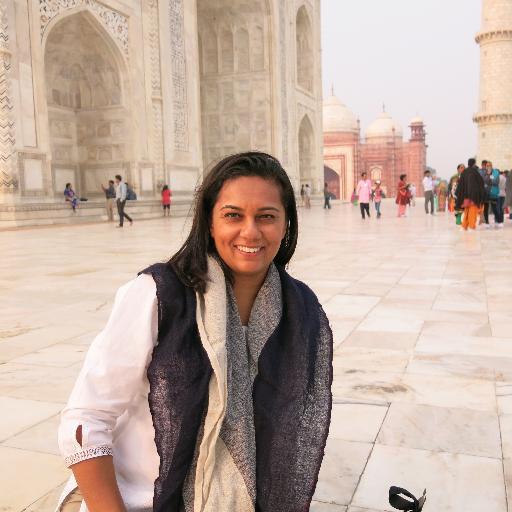By Alison van Diggelen, host of Fresh Dialogues
Why are women still struggling to reach parity in the Indian and Silicon Valley jobs market? Why is rock star economist Thomas Piketty predicting that revolution could be the great equalizer? And what explains the unexpected and dramatic rise in popularity of Bernie Sanders in the US election? All this and more was discussed last night on the BBC’s Business Matters.
I joined a lively discussion with BBC host Anu Anand who’s based in Delhi, and Jayati Ghosh, Professor of Economics at Jawaharlal Nehru University in Delhi. Listen to the podcast here (Jan 29, 2016)
Here are some highlights from our conversation, (starting at 20:43, edited for length and clarity):
Anu Anand: Alison, you’ve reported from Japan where there’s a real impetus to bring women into the workforce. Any lessons from there?
Alison van Diggelen: Prime Minister Abe has a goal of reaching 30% of women in positions of leadership by 2020. What he’s doing is mandating that large companies reveal their diversity statistics. Someone I interviewed there -Elizabeth Handover – called it a “shaming and blaming” strategy. In other words: release your figures and the shame upon you will incentive you to get more women into positions of power…But as in India, there is a big cultural pressure in Japan for women to stay at home, especially if they’ve had children.
Anu Anand: You’re in the heart of Silicon Valley. Would you say that women have achieved parity in the high tech workforce?
Alison van Diggelen: No, not at all. Women make up only 30% of these tech companies, and then tech jobs within that are only between 12% and 18%. We have a long way to go, but we’re moving in the right direction…
Justin Rowlatt: In India we see very rapid growth, an economy growing at 7%. In a society growing that quickly, surely inequality is less of an issue?
Thomas Piketty: Inequality is an even bigger problem in emerging countries. One important lesson from my historical study of inequality is that it took very big shocks, major shocks – World War I, Wold War II, the Great Depression, the Bolshevik Revolution for the Western elites to accept the kind of social, and fiscal reforms which brought a reduction in inequality and increased economic growth….
The big risk here in India like in other parts of the world, is that extreme inequality tends to lead to sometimes violence, some politicians to try to exploit…that’s why it’s so important to have more transparency about the complex relationship between caste and income and wealth; and address it through adequate reservation systems, adequate social policy…
Anu Anand: Let’s turn to Alison van Diggelen, host of Fresh Dialogues in San Francisco and Jayati Ghosh, Professor of Economics here in Delhi….Women are bearing the burden of growing inequality?
Jayati Ghosh: The proportion of women who get any kind of income from working (in India) is only about 2%. About 90% of women are working and they’re really engaged in unpaid work. Policies and processes don’t even bother to recognize this work so they don’t do anything to reduce it…for e.g. piped water, which would reduce the burden of going to fetch it. Piketty is right: India is one of the higher inequality countries in the world…the elite in India… holds on to most of the assets, grabs the natural resources, concentrates the wealth and shapes policies to make more of this…This leads to violence.
Anu Anand: Alison, inequality in the US has been growing too. It’s certainly a big point of debate at the moment, especially with the presidential candidates sparring with each other?
Alison van Diggelen: Absolutely, it’s a huge issue here. The inequality is the highest today since the 1930’s. The surprise popularity of Bernie Sanders – who has made inequality and poverty one of his number one issues – he calls it “The Great Moral Issue of our Time”…He came from nowhere – it’s to do with his message resonating that income inequality affects us all. A lot of people thought Hillary Clinton had the Democratic nomination in the bag. Sanders has really grasped on that and he’s riding on inequality and really giving Hillary Clinton a run for her money for this Democratic nomination.
Anu Anand: Do you see a world in which we’re not going to have to talk about inequality? Both india and America are very market driven economies?
Alison van Diggelen: I think inequality is rife here however, two studies in 2015 confirmed that people – both rich and poor alike – still believe in a brighter future. It may be misguided, but there is that aspirational idea and the class system in my experience – especially in Silicon Valley full of inspiring entrepreneurs – is less prevalent than I experienced growing up in Britain, where you’re encouraged to stay in the class you’re born. For example, when I was offered a place at Cambridge University, my father, a working-class union man from Glasgow asked me: what do you want to go there for? Aren’t the universities in Scotland good enough? There was that “stay in your place” attitude that I broke away from.
Check back soon for a report on online education and its potential to help close the income divide by increasing access to education and tech jobs.




